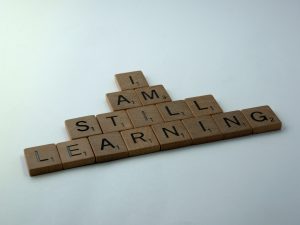Making Education Relevant to Indigenous Cultures and History
Education plays a crucial role in shaping the perspectives and knowledge of individuals, providing them with the necessary tools to succeed in life. However, for many indigenous communities around the world, the education system has often failed to recognize and value their cultures and histories. This has resulted in a disconnection between these communities and the education system, limiting their access to quality education and hindering their ability to thrive. In recent years, there has been a growing movement towards making education more relevant to indigenous cultures and histories, recognizing their contributions and unique perspectives. In this article, we will explore the importance of this movement and the steps being taken to create a more inclusive and culturally-sensitive education system for indigenous communities.
Understanding the Disconnection
For decades, the education system has largely focused on mainstream Western cultures, with minimal recognition and incorporation of indigenous cultures and histories. This has resulted in a significant disconnection between indigenous students and the curriculum, as their cultures and experiences are often overlooked and not represented in the content taught in schools. As a result, many indigenous students do not see themselves reflected in the education system, leading to feelings of alienation and a lack of motivation to learn.
The Negative Impact on Indigenous Communities
The lack of relevance of education to indigenous cultures and histories has had a detrimental impact on these communities. It has not only limited their access to quality education but also contributed to the erasure of their identities and histories. As a result, many indigenous youths struggle with low self-esteem and a sense of cultural disconnection, leading to higher rates of dropout and lower academic achievement.
The Importance of Making Education Relevant
Making education relevant to indigenous cultures and histories is crucial for several reasons. Firstly, it promotes a sense of belonging and inclusivity, allowing indigenous students to feel valued and represented in the education system. This fosters a positive learning environment and can lead to improved academic performance. Additionally, it helps preserve indigenous cultures and histories, ensuring they are not lost or forgotten.
Breaking Down Stereotypes and Biases
Another essential reason for making education relevant to indigenous cultures and histories is to break down stereotypes and biases that exist in mainstream education. By incorporating diverse perspectives and experiences into the curriculum, the education system can help dispel harmful stereotypes and promote cultural understanding and respect.
Steps Being Taken
The movement towards making education relevant to indigenous cultures and histories is gaining momentum, with various initiatives being taken to address the disconnection. For instance, some schools have started to incorporate indigenous languages and traditional knowledge into their curriculum, providing students with a more holistic education experience. Other initiatives include providing cultural sensitivity training to teachers and developing culturally responsive teaching methods that incorporate indigenous perspectives into lesson plans.
The Role of Technology
Technology has also played a significant role in making education relevant to indigenous cultures and histories. With the rise of e-learning and online resources, it has become easier to access diverse educational materials that recognize and celebrate indigenous cultures and histories. This has also made it possible to connect with indigenous communities from around the world, allowing for a more global and inclusive education experience.
In Conclusion
The movement towards making education more relevant to indigenous cultures and histories is vital in creating a more inclusive and equitable education system. It recognizes the diversity and contributions of indigenous communities and promotes cultural understanding and respect. By taking steps to bridge the disconnection between indigenous students and the education system, we can create a brighter future for generations to come.









